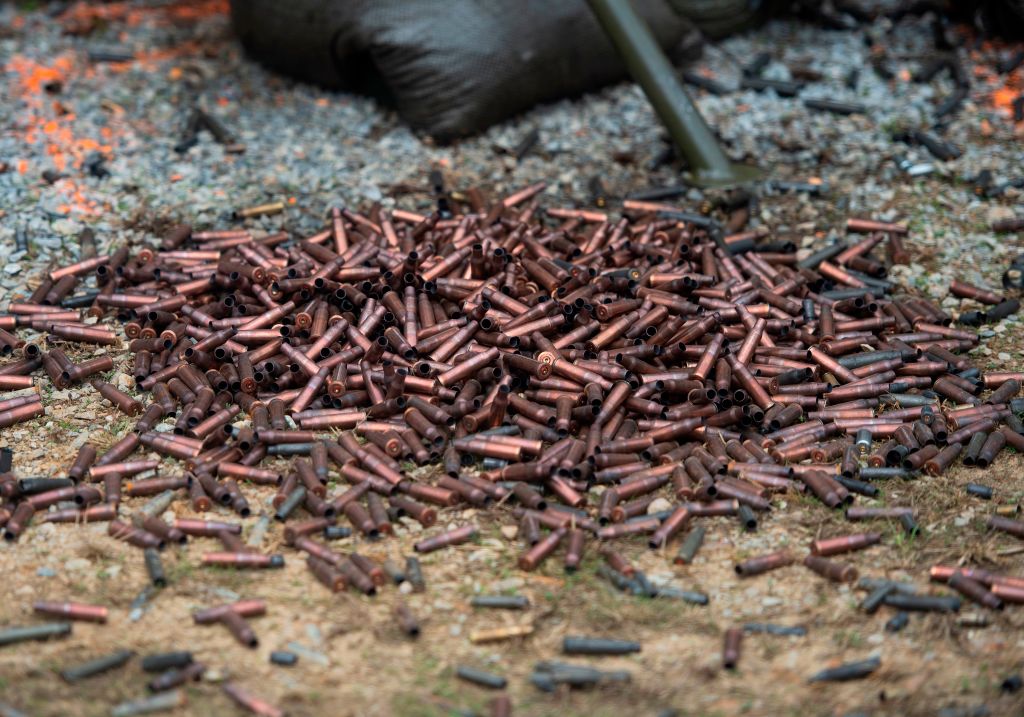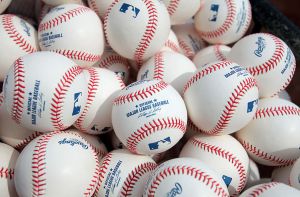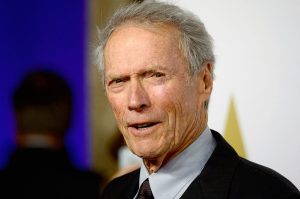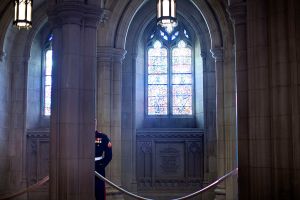Batavia, New York
I’m motoring down Route 98 on my yearly trek to the triannual Alexander Gun Show, held in the Alexander volunteer fireman’s hall. I’m croaking, blissfully off-key, to the music of Gram Parsons, the Florida trustfund Harvardian (one semester) who countrified the Byrds and sought to bring together hippies and rednecks and truck drivers and churchgoers and groovy chicks under his Cosmic American Music banner. It’s a dream still worth dreaming.
When Gram wasn’t getting high with drug buddy Keith Richards (and rolling the Stones toward their ‘Wild Horses’ country way-station) he was singing with utter conviction such songs as the Louvin Brothers’ ‘The Christian Life’, which fellow-Byrd Roger McGuinn twanged with a trace of mockery on the band’s landmark album Sweetheart of the Rodeo.
Parsons was not one of those 1960s Southrons who expatriated and then slagged on the rubes he left behind; he sometimes performed in front of a huge Confederate flag, rather in the ecumenical Dixie Pride spirit of the New Left’s Southern Student Organizing Committee, whose logo featured clasped black and white hands over that now-vexing vexillum.
I don’t see any rebel flags in Alexander — this is the North, after all, and it was Lincoln country in 1860 — as I pass the tables laden not only with guns (typically older Winchesters or Remingtons, not school-shooter specials), but also fishing tackle, ammo, books about the hobby and knives. (Knives for hunting, that is, not stabbing Londoners.) Missing, alas, is Shep, my oldest friend in the world, who inherited the table his late father had manned for half a century. Shep grew up across the street from me. He was the toughest kid in school: I once saw him drop his rival for the title, a bellicose, stringy-haired Polack two years his senior, with one punch. He was always placed in the slow classes, back in those days of tracking and segregating by IQ tests, but he wasn’t slow. Like a lot of people lacking formal education, he is eccentrically well-read, opinionated and unintimidated by — nay, contemptuous of — the ostentatiously degreed.
He gets out less these days, due to a leg mottled with open sores — from sugar, I guess, — but if you ask him how he’s doing he’ll say, ‘OK’, and change the subject. His is the one gun-show table always piled high with history books, advertising props and political campaign items, which he and I started collecting in 1972, when as boys we’d invade the downtown Republican and Democratic headquarters to find Nixon and McGovern buttons. I thought of Shep years later, when I befriended McGovern and had him sign one of his ’72 bumper stickers; although Shep wears a MAGA hat, he appreciates the great color-splash of McGovern’s campaign paraphernalia.
The Alexandrians know that the overclass has marked them for repression. So there is a greater political flavor to this gathering than there has been in the past. I see those red hats, as well as T-shirts and tchotchkes for sale bearing heroic images of Trump. A lady — the fairer sex is represented here — sells wind chimes missing a single cylinder and vaingloriously captioned ‘I need one more trespasser to complete my wind chime’.
I don’t hunt. I don’t shoot. The only firearm I own is an 1840s black powder gun — a fowling piece, for you antiquarians — which wouldn’t stop a single zombie should the Apocalypse of the Undead arise. But I was raised in a peaceable kingdom in which such weapons are tools of sport and the hunt and fellowship. Two of my great-grandfathers worked in our town’s Baker gun factory, one as a laborer, the other as a mason. My dad, at 83, is walking Alexander’s aisles as he has ever since I can remember, chaffing and chatting and dickering as if he’s 35 again.
Class analysis is the most accurate lens through which to view the debate over gun control, which the most pliant elements of the corporate media now call by the focus-group term ‘gun safety’. The rifles and shotguns for sale in Alexander are used in a surpassingly small percentage of crimes, yet New York’s ruling class and its courtier publicists, who hate no thing or no one quite as much as they hate rural folks and the white working class, harass these people (who murder and rob at a rate so negligible as to approach zero) with an endless gauntlet of fees and paperwork and background checks and outright prohibitions.
Bernie Sanders, before he sacrificed rural Vermonters to his vaulting ambition to be king, had understood gun control laws in just this light: as persecution of The People by our overlords and their New Class factotums.
The Middle American impulse to rebellion may have been dulled by porn and dope and televised sports, but in the event of the gun confiscation fancied by the Democratic party’s billionaires and its NPR tote-bag carriers, the hinterlands will not submit. I saw a T-shirt at the Alexander show reading, ‘When Guns are Outlawed I Will Be an Outlaw’.
Not if, but when. A political-economic-entertainment regime that makes enemies of its subjects deserves whatever it gets.


















